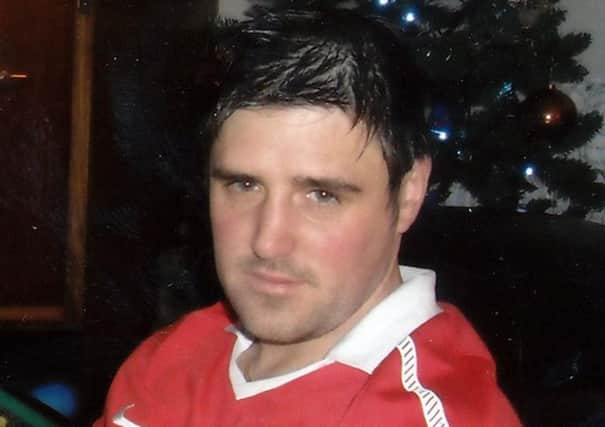Father of knife victim in verdict referral plea


Alan McLean said the proposal should be turned into new legislation to be known as Barry’s Law, named after his son, who died in 2011 in Burntisland, Fife, at the age of 27.
Sean Kitchener denied murdering Mr McLean’s son and was found not guilty by a jury after a trial at the High Court in Edinburgh in 2012.
Advertisement
Hide AdAdvertisement
Hide AdMr McLean issued a plea to Holyrood’s public petitions committee yesterday to back his call to hand trial judges the power to refer “irrational, unsupported or unbelievable” verdicts of acquittal to the appeal court.
He also criticised the current system for selecting jurors as a “lottery”, which made it possible for “incompetent” people to be chosen, and said a suitability test should be introduced.
Mr McLean said: “We lost our precious son on 28 May 2011, due to knife crime, which is every parent’s worst nightmare as no parent should outlive their child, especially to knife crime.
“The devastation, everlasting pain and emptiness will remain with us for the rest of our lives.”
The call for the shake-up of the jury system came days after the Scottish government set aside its plans to scrap the centuries-old principle of corroboration in criminal trials.
Mr McLean was challenged by committee members who raised concerns that the petition, which has attracted 1,311 signatures, would undermine the Scottish justice system.
However, Mr McLean responded saying that his proposal was “highly restricted” and should only apply to the most serious of cases, such as those where a life had been taken.
He said: “There will be criticism, there will be a small percentage who oppose it, but I think in the long run … we need to make sure that we do have a foolproof system in place and where perverse acquittals have come out and are evident, I think that we need to make sure that nobody is going to slip through.
Advertisement
Hide AdAdvertisement
Hide Ad“That safety net needs to be in place to give our judges that control measure and I think that would also echo the message to the public to say, ‘these relevant changes are in place, you will not beat the justice system’.”
Mr McLean said he supported the recent call made by former High Court judge Lord Bonomy for further research into jury reasoning and decision-making.
MSPs agreed to write to the Scottish Government to ask what further action would be taken on jury research.
The committee will also seek views from organisations including the Crown Office and Procurator Fiscal Service, the Faculty of Advocates, the Law Society of Scotland and the Scottish Human Rights Commission on the petition’s proposal.
Holyrood’s public petitions committee convener, John Pentland, praised Mr McLean’s contribution and called for a “thorough investigation” of Scotland’s jury system. Mr Pentland, a Labour MSP, said: “Alan McLean presented his petition with great dignity and articulacy, and the committee share our deepest condolences for his loss.
“Through exceptionally tragic circumstances Mr McLean has highlighted that research into how and why juries make decisions is virtually non-existent.”
Mr Pentland added: “Lord Bonomy recently called for research into jury reasoning and decision-making in the event of the corroboration requirement being abolished.
“First and foremost, the Committee will be asking the Scottish Government if it plans to action Lord Bonomy’s call.
“A thorough investigation into the jury system is a crucial first step in establishing whether there are fundamental flaws in our current jury system which should be addressed.”